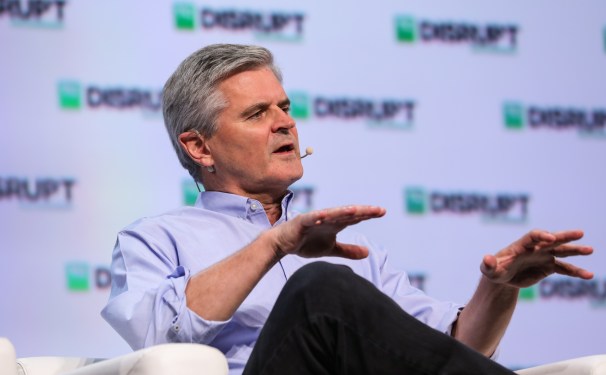Steve Case has long championed the importance of open access in driving innovation. His experience at AOL, where he witnessed firsthand the transformative impact of opening up access to technologies like the Internet, has shaped his views on AI policy. Now, as the founder of Revolution, a venture capital firm that supports startups outside the traditional tech hubs of Silicon Valley and Boston, Case is advocating for a similar principle to ensure AI success isn’t concentrated in the hands of a few.
The Legacy of Open Access: AOL’s Success and the Future of AI
In his presentation at TechCrunch’s StrictlyVC event, Steve Case highlighted how open access wasn’t just beneficial for AOL in the ’90s but also lies at the heart of why the internet has evolved as it has today. He argued that regulating AI policies should mirror this principle, aiming to level the playing field and foster innovation by allowing all players to thrive.
The Potential Risks and Benefits
Case acknowledges the inherent risks associated with open-source technologies, particularly national security concerns. However, he emphasizes that these risks are secondary to ensuring a level playing field for future innovators. He warns against the dangers of concentrating AI power in the hands of major tech companies, arguing that this concentration could stifle innovation.
Broad Support Needed
Steve Case stresses the importance of federal regulation over state-level ad hoc measures. He believes that having a unified policy would provide clarity and stability to the industry, enabling vertical AI players to build upon their technologies effectively. This includes supporting startups in diverse sectors like agriculture or healthcare, which could naturally lead to companies based outside the traditional tech hubs.
The Urgency of Policy Implementation
Given the rapid growth of AI within just two years, Case argues that now is the time to implement effective regulation. Drawing parallels with how social media platforms and the internet evolved under a light-touch regulatory approach, he cautions against repeating past mistakes by introducing policies that could stifle innovation.
The Global Scope: China’s Approach
Looking beyond U.S. boundaries, Steve Case references Xiaohongshu, China’s answer to Instagram, which has achieved remarkable success on the App Store despite the US market’s constraints. This example underscores the potential for innovative growth in global markets when policies are inclusive and supportive.
Conclusion
Steve Case’s vision for AI policy is clear: ensuring that technological advancements benefit all individuals and industries by fostering open access and collaboration. His advocacy aligns with AOL’s success story, emphasizing the importance of a level playing field to drive innovation and ensure equitable growth in the AI era.
References:
- TechCrunch: For updates on startups and tech news.
- Collibra: An AI governance platform.
- Maggie Stamets: Biotech & Health content.
- Waubbi: Physical-world generative AI solutions.










